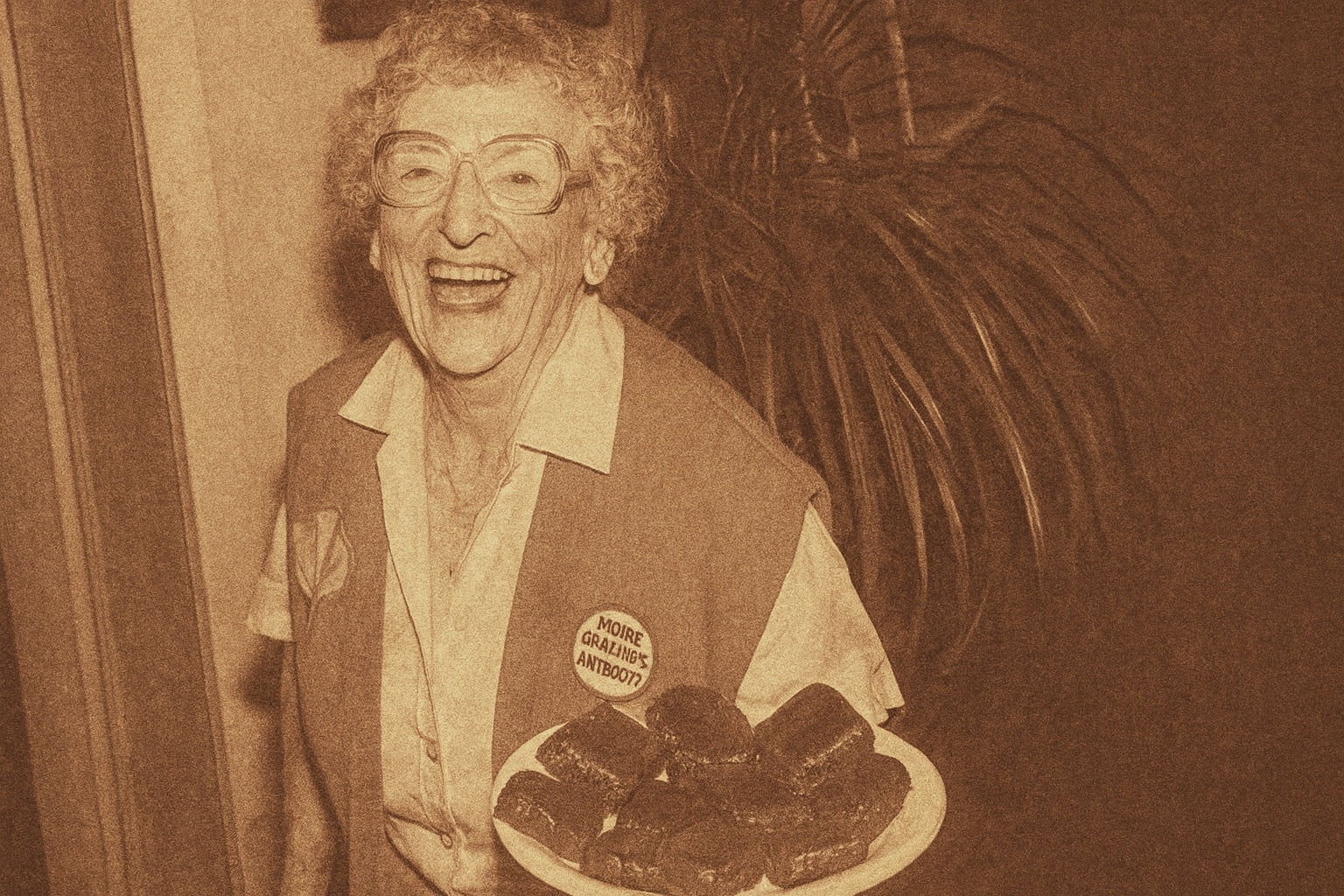
Long before cannabis reform entered the mainstream, Mary Jane Rathbun—better known as Brownie Mary—was quietly reshaping what compassion looked like in San Francisco. A waitress by trade and activist by instinct, she found her calling in the kitchen, baking cannabis brownies not for profit or protest, but for people in pain.
During the height of the 1980s AIDS crisis, Brownie Mary became a lifeline for patients at San Francisco General Hospital. Week after week, she delivered her “magic brownies” to those battling nausea, pain, and appetite loss—offering relief when few other treatments existed. Her generosity and defiance made her a fixture in the Castro District, where she became known not just for her baked goods, but for her unwavering belief that cannabis could heal.
Defiance in the Face of the Law
Rathbun’s compassion came at a cost. Between 1981 and 1992, she was arrested three times for baking and distributing cannabis brownies—each time earning more public support than condemnation. Her grandmotherly demeanor and unapologetic honesty disarmed prosecutors and drew national media attention to the emerging medical cannabis movement.
Despite her arrests, she refused to stop. Rathbun often said, “My kids need this and I’m ready to go to jail for my principles.” Working alongside fellow activist Dennis Peron, she continued her advocacy, helping launch the San Francisco Cannabis Buyers Club—the first medical cannabis dispensary in the United States—and inspiring others to fight for access, safety, and dignity.
Laying the Groundwork for Legalization
In 1991, Brownie Mary helped pass San Francisco’s Proposition P, urging the state to make cannabis available for medical use and protect physicians who recommended it. Just five years later, her efforts culminated in California’s Proposition 215, the historic initiative that legalized medical marijuana statewide and sparked a nationwide movement for patient rights.
Her courage also caught the attention of the medical community. Following her 1992 arrest, researchers at the University of California, San Francisco—moved by her work with AIDS patients—proposed one of the first clinical trials to study the effects of cannabinoids in people living with HIV. What began in her kitchen became the catalyst for legitimate medical research that continues to this day.
A Legacy That Lives On
Brownie Mary’s later years were marked by illness, but she remained outspoken until her death in 1999 at age 76. San Francisco honored her legacy by declaring August 25 “Brownie Mary Day,” and her close friend, District Attorney Terence Hallinan, called her “the Florence Nightingale of the medical marijuana movement.”
Her story stands as a testament to what happens when compassion outweighs fear. Through her defiance, she humanized cannabis at a time when few dared to speak its name and helped shape the path toward the modern industry we know today.
At TYSON 2.0, her legacy is more than history—it’s a reminder of why we fight for access, reform, and understanding. Brownie Mary proved that cannabis isn’t just a plant. It’s a movement built on care, courage, and the belief that doing the right thing is worth every risk.


